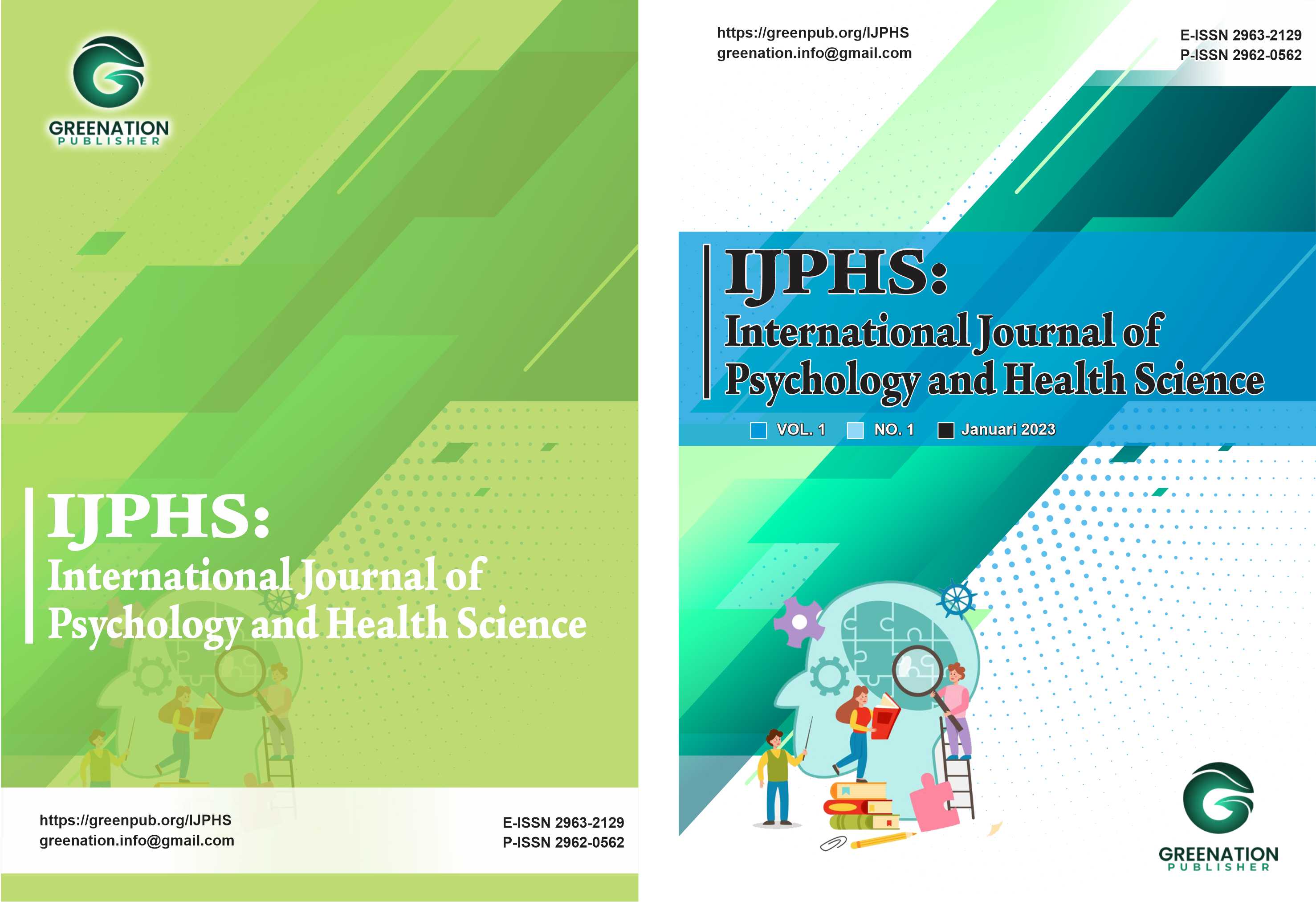The Impact of Academic Stress on Students' Mental Health: Coping Interventions Based on Virtual Reality Technology
DOI:
https://doi.org/10.38035/ijphs.v2i4.727Keywords:
Academic stress, Mental health, Coping, Virtual Reality, Students.Abstract
Academic stress is a common issue faced by university students, particularly in major cities like Jakarta, and often has a negative impact on their mental health. This study aims to evaluate the effectiveness of Virtual Reality (VR) technology as an innovative coping strategy to reduce academic stress and improve students' mental health. The study utilized a quasi-experimental design involving 60 students from various universities in Jakarta who met the inclusion criteria, which included having moderate to high levels of academic stress. Participants were randomly divided into two groups: an experimental group (using VR intervention) and a control group (using conventional coping strategies). Data were collected using the Student-Life Stress Inventory (SSI) to measure academic stress levels and the Depression Anxiety Stress Scales (DASS-21) to assess mental health, at both pre-test and post-test stages. The results showed that the experimental group receiving the VR intervention experienced a significant reduction in academic stress levels (with an effect size of 1.86) and an improvement in mental health (with an effect size of 2.02), compared to the control group, which showed smaller changes. These findings support the hypothesis that VR-based coping interventions are more effective than conventional coping strategies in reducing academic stress and improving students' mental health. These results have practical implications for educational institutions to consider incorporating VR technology into student mental health support programs. The study suggests using VR as an engaging and relevant coping method for the tech-savvy student generation.
References
Barseli, M., Ifdil, I., & Nikmarijal, N. (2017a). Konsep Stres Akademik Siswa. Jurnal Konseling Dan Pendidikan, 5(3). https://doi.org/10.29210/119800
Barseli, M., Ifdil, & Nikmarijal. (2017b). Konsep Stres Akademik Konseling dan Pendidikan. Jurnal Konseling Dan Pendidikan, 5(3).
Barseli, M., & Nikmarijal, N. (2017). Jurnal Konseling dan Pendidikan Konsep Stres Akademik Siswa. Jurnal Konseling Dan Pendidikan, 5(3).
Basith, A., Syahputra, A., Fitriyadi, S., Rosmaiyadi, Fitri, & Triani, S. N. (2021). Academic stress and coping strategy in relation to academic achievement. Cakrawala Pendidikan, 40(2). https://doi.org/10.21831/cp.v40i2.37155
Bella Khansa Puspita, & Dewi Kumalasari. (2022). Prokrastinasi dan Stres Akademik Mahasiswa. Jurnal Penelitian Psikologi, 13(2). https://doi.org/10.29080/jpp.v13i2.818
Carver, C. S., & Connor-Smith, J. (2010). Personality and coping. Annual Review of Psychology, 61. https://doi.org/10.1146/annurev.psych.093008.100352
Drawson, A. S., Toombs, E., & Mushquash, C. J. (2017). Indigenous research methods: A systematic review. International Indigenous Policy Journal, 8(2). https://doi.org/10.18584/iipj.2017.8.2.5
Eisenbeck, N., Carreno, D. F., Wong, P. T. P., Hicks, J. A., María, R. R. G., Puga, J. L., Greville, J., Testoni, I., Biancalani, G., López, A. C. C., Villareal, S., Enea, V., Schulz-Quach, C., Jansen, J., Sanchez-Ruiz, M. J., Y?ld?r?m, M., Arslan, G., Cruz, J. F. A., Sofia, R. M., ... García-Montes, J. M. (2022). An international study on psychological coping during COVID-19: Towards a meaning-centered coping style. International Journal of Clinical and Health Psychology, 22(1). https://doi.org/10.1016/j.ijchp.2021.100256
Ghofar, A., & Islam, S. M. N. (2015). Research method. In Contributions to Management Science. https://doi.org/10.1007/978-3-319-10996-1_4
Maresca, G., Corallo, F., Catanese, G., Formica, C., & Lo Buono, V. (2022). Coping Strategies of Healthcare Professionals with Burnout Syndrome: A Systematic Review. In Medicina (Lithuania) (Vol. 58, Issue 2). https://doi.org/10.3390/medicina58020327
Norma, Widianti, E., & Hartiningsih, S. S. (2021). Faktor, penyebab, tingkat stres dan dampak stres akademik pada mahasiswa dalam sistem pembelajaran online di masa pandemi COVID-19. Jurnal Ilmiah Permas: Jurnal Ilmiah STIKES Kendal, 11(4).
Pan, Z., Cheok, A. D., Yang, H., Zhu, J., & Shi, J. (2006). Virtual reality and mixed reality for virtual learning environments. Computers and Graphics (Pergamon). https://doi.org/10.1016/j.cag.2005.10.004
Pramesta, D. K., & Dewi, D. K. (2021). HUBUNGAN ANTARA EFIKASI DIRI DENGAN STRES AKADEMIK PADA SISWA DI SMA X. Character Jurnal Penelitian Psikologi, 8(7).
Prasetya, A. L., Merida, S. C., & Novianti, R. (2022). Hardiness dan Stres Akademik Mahasiswa selama Pembelajaran Jarak Jauh. Journal of Psychology Students, 1(1). https://doi.org/10.15575/jops.v1i1.16792
Siregar, I. K., & Putri, S. R. (2020). Hubungan Self-Efficacy dan Stres Akademik Mahasiswa. Consilium: Berkala Kajian Konseling Dan Ilmu Keagamaan, 6(2). https://doi.org/10.37064/consilium.v6i2.6386
Taylor, S. E., & Stanton, A. L. (2007). Coping resources, coping processes, and mental health. In Annual Review of Clinical Psychology (Vol. 3). https://doi.org/10.1146/annurev.clinpsy.3.022806.091520
Wolfers, L. N., & Utz, S. (2022). Social media use, stress, and coping. In Current Opinion in Psychology (Vol. 45). https://doi.org/10.1016/j.copsyc.2022.101305
Yunalia, E. M., Jayani, I., Suharto, I. P. S., & Susilowati, S. (2021). Kecerdasan Emosional dan Mekanisme Koping Berhubungan dengan Tingkat Stres Akademik Mahasiswa. Jurnal Keperawatan Jiwa, 9(4).
Downloads
Published
Issue
Section
License
Copyright (c) 2024 Alma Syifa Maulidina, Thalita Syifa Fatimah

This work is licensed under a Creative Commons Attribution 4.0 International License.
Authors who publish their manuscripts in this journal agree to the following conditions:
- The copyright on each article belongs to the author(s).
- The author acknowledges that the International Journal of Psycology and Healt Science (IJPHS) has the right to be the first to publish with a Creative Commons Attribution 4.0 International license (Attribution 4.0 International (CC BY 4.0).
- Authors can submit articles separately, arrange for the non-exclusive distribution of manuscripts that have been published in this journal into other versions (e.g., sent to the author's institutional repository, publication into books, etc.), by acknowledging that the manuscript has been published for the first time in the IJPHS.





















